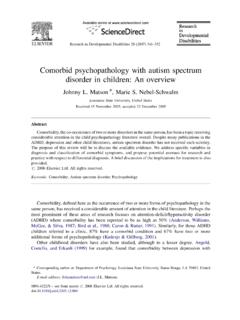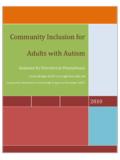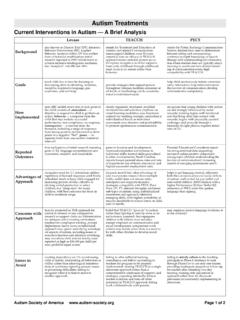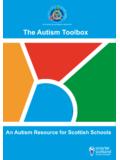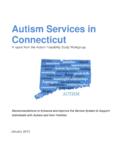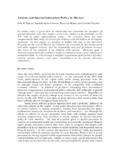Transcription of Autism Speaks Canada Facts and Stats - Autism Services Inc
1 Autism Speaks Canada Facts and Stats Updated March 27, 2014 Autism now affects 1 in 68 children. Boys were almost 5 times more likely to be identified with ASD than girls. About 1 in 42 boys and 1 in 189 girls were identified with ASD. This new estimate is roughly 30% higher than the estimate for 2008 (1 in 88), roughly 60% higher than the estimate for 2006 (1 in 110), and roughly 120% higher than the estimates for 2002 and 2000 (1 in 150). Most children identified with ASD were not diagnosed until after age 4, even though children can be diagnosed as early as age 2.
2 There is no known cure for Autism (US Centers for Disease Control and Prevention, March 2014) 10 Things to Know About New Autism Data Prevalence in Canada At present there is no federal government monitoring system (like the US CDC) in place to provide us with accurate statistics on the prevalence of ASDs in Canada even though we do know that ASD is the most common form of any neurological disorder or severe developmental disability of childhood. In the past two years, Health Canada has been partnering to begin conducting surveillance for ASDs within their current epidemiological surveillance systems.
3 There are a number of differences across provincial and territorial health care systems (in how ASDs are diagnosed and recorded) that make this research challenging. According to Health Canada , they are working on a national surveillance system that will take place between 2012 and 2015. Implementation of this system is anticipated for 2015.


